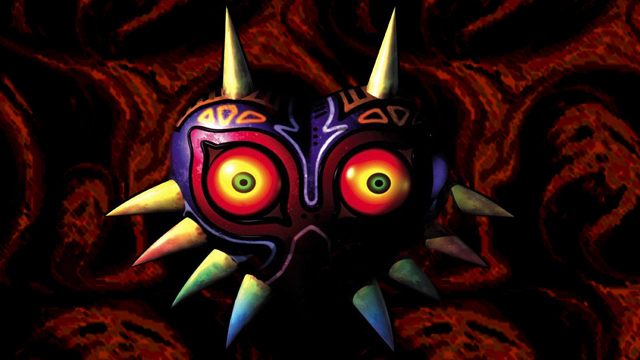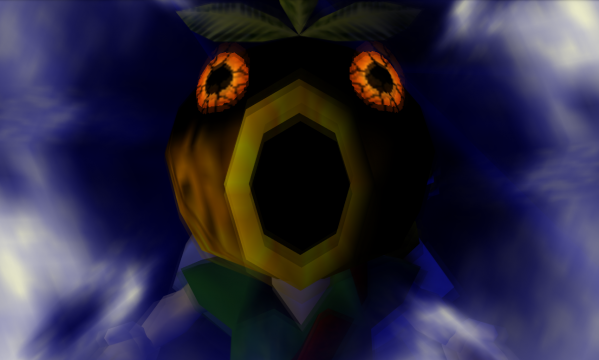
Fear has always been around in video games. From the very basic threat of losing a “life” to a whole separate genre dedicated to making you feel powerless before your enemies. And that genre, of course, is survival horror. Recently, I’ve been thinking a lot of how survival horror games are making a return thanks to such titles as Outlast, The Lone Survivor, and Amnesia. Yet I still don’t find those games as terrifying as I would want them to be. The reason behind this is due to the absence of a very important element, something I like to call “intellectual fear.” I don’t find the direct danger of a monster eating my face particularly scary, despite how awful it might sound. On the other hand, a moment of understanding a certain piece of information that breaks the very basis of how you perceived the events of the game is something I find truly spine-chilling. Perhaps this shows my love for the old Lovecraftian horror, where the whole conflict has always been between a cultured, highly-educated protagonist versus the world of the unknown and unexplainable. With some exceptions like the Silent Hill series or the already mentioned Lone Survivor, the genre of survival horror is not the place I usually go to find some good scares and sleepless nights. Of all places, bizarrely enough, it is Nintendo games.
Very often Nintendo is branded as a kids-oriented company that produces only rainbow-flavored sweets. And, of course, anyone who has ever played a Nintendo game knows how wrong of a statement that really is. What always amazes me about Nintendo is how its games can be enjoyed by absolutely different age groups and how they contain different elements for different kinds of players. Which finally brings us to the darker elements found in Nintendo games. We all were scared of Majora’s Mask’s creepy atmosphere and EarthBound’s surreal freakshow at the end. Remember the Dark Link scene in Twilight Princess? What was up with that, right? Nintendo is like Michael Jackson in a way, always trying to shove dark undertones in his music videos. Although, unlike the King of Pop, Nintendo knows what the word “subtle” means. That, I think, is the very basis of why dark elements work in so well in the company’s games. Let’s have a deeper look at some of the fine examples of “Nintendo horror” that I’ve already mentioned above: Majora’s Mask and EarthBound.

If you’ve played EarthBound, you know it’s one of the quirkiest games out there. It’s filled with humor and all kinds of enjoyable weirdness. But throughout the game you start to learn more about the antagonist named Giygas. You don’t know much about him, but you see his influence in the world. You get this feeling of uneasiness, like something bigger than you is happening in the game. By the time you get to the final encounter with Giygas, nothing can prepare you for what you’ll see. Nothing can prepare you for the embodiment of evil. Your senses get attacked with some of the most controversial imagery in Nintendo games and music that can be used as sonic warfare. I played EarthBound when I was 16, yet it was still one the most terrifying experiences I’ve ever had in a video game. Such a sudden change of everything you knew about the game works because it feels like it should not be happening. It’s out of the ordinary. Prior to these events, EarthBound established a world and all the rules of how it works. It created a sense of normality. That’s why when you see Giygas, your encounter works like such a shock to the system. It’s like if you see a ghost or a monster in real life. You face something supernatural.
Majora’s Mask functions in a similar way, only it already has a very dark and depressing world. So how does it work if “normality” already contains a presence of dark elements? I think Majora’s Mask works because of the dark undertones that stay unclear by the end of the game– like, for example, the origins and true motives of the Happy Mask Salesman. My favorite mystery is the theory about Link being dead in Majora’s Mask. There are hidden hints in the game suggesting this theory might be true, but still no solid answer by the end of it. Granted, many survival horror games use uncertainty and vagueness to scare the player, but they also way too often throw a lot of direct threats at you. In a survival horror game, your normality becomes constant encounters with monsters and the unnatural. Because of that, it’s hard to be surprised than something scary is happening. You expect it to happen. But when we’re talking about games like EarthBound or Majora’s Mask, you don’t expect scary things to happen. They are rare, and that makes them much more powerful.
So, what do you think about Nintendo games being scary? Have you ever experienced something like this? Let us know in the comments!




 ShareThis
ShareThis







I was recently shown the theory about link being dead, and while some of his reasons seem a bit like pure coincidence, a lot of it does kind of make sense.
Personally, I think that, like you said, Nintendo are just using the theme of death in a subtle way. I probably just don’t want to think that he died at the start though!